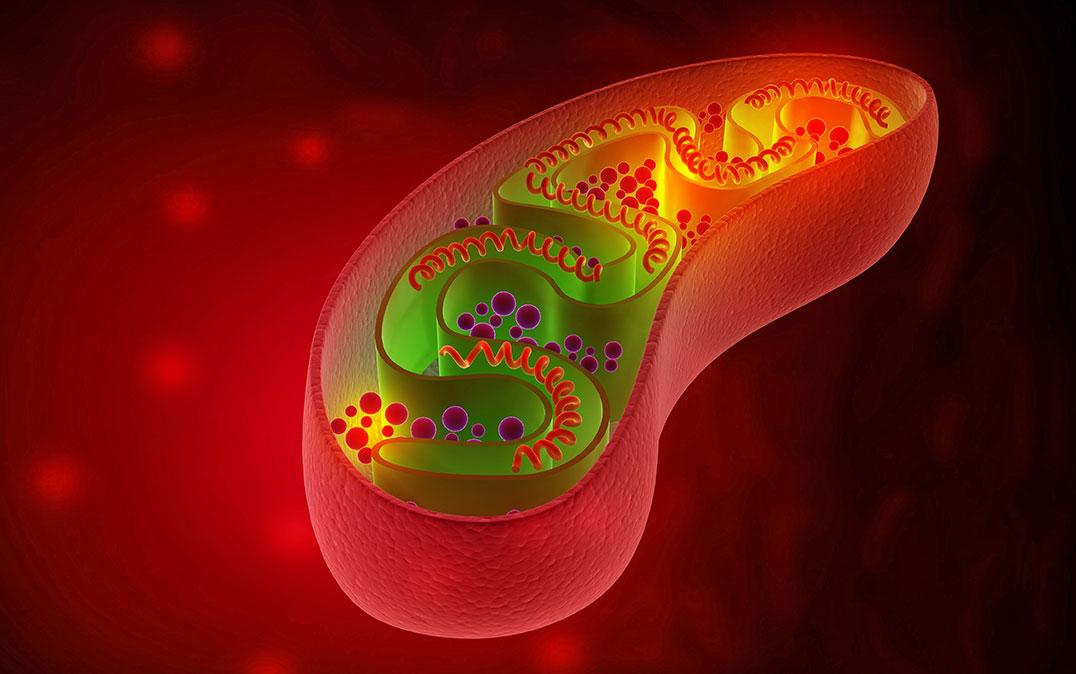Research News
First Mouse Model with Mitochondrial tRNALeu Mutation Developed
 Image by Explode/Shutterstock
Image by Explode/Shutterstock
Researchers from the University of Tsukuba have developed the first mouse model for a mitochondrial tRNALeu mutation, showing that the associated metabolic disorder results from faulty RNA processing
Tsukuba, Japan—Studying the role of mitochondria—the specialized structures within cells responsible for energy production—in metabolic diseases has been difficult because of a lack of animal models with the necessary mitochondrial mutations to observe these tiny organelles. However, a team from the University of Tsukuba have now generated the first mouse model carrying a disease-associated mitochondrial mutation and have shown that the resulting disease is caused by faulty RNA processing.
Mitochondria are surrounded by a membrane and contain a small amount of their own DNA. This mitochondrial DNA codes for some components of the energy-generating machinery, as well as genes for both ribosomal RNAs (components of the machinery that makes proteins) and transfer RNAs that play a key role in protein synthesis. Mutations in the mitochondrial genome are known to be linked to some human disorders such as diabetes, neurodegenerative diseases, infertility, and cancer.
Researchers at the University of Tsukuba fused cells that contained mitochondria carrying mutant DNA, but no nucleus, with embryonic stem cells that had had all their mitochondria removed by a drug called rhodamine 6G, thus creating a mouse model containing the A2748G mutation. This mutation is found in human patients, where it is known as the A3302G mutation, and is one of the common mitochondrial mutations associated with some human diseases, such as certain neuromuscular diseases, encephalopathy (brain damage), and metabolic disorders.
The mice carrying this mutant mitochondrial DNA developed metabolic disorders that mimicked the symptoms shown by human patients carrying the equivalent human mutation. This enabled further study to uncover the underlying molecular mechanism of the associated disease, which showed that this mutation affected the processing of RNAs by interfering with protein synthesis in the affected mice.
"The faulty processing of the RNA containing the A2748G mutation led to a decrease in the translation of a protein known as ND1," explains main author Professor Kazuto Nakada. "ND1 is a component of a protein complex known as Complex 1, the first of five key protein complexes in the process of energy generation known as oxidative phosphorylation." The resulting Complex I deficiency affected the function of the cellular energy-generating pathway, which then went on to cause mitochondrial dysfunction and metabolic disorders.
The development of this model will open new avenues for scientific discovery in the study of mitochondria and multiple diseases.
###
This work was supported by an AMED-CREST grant [JP22gm1110006 to K. N.] from Japan Agency for Medical Research and Development, Grant-in-Aid from the Japan Society for the Promotion of Science Fellows [18J20289 and 21J00143 to H. T.], Grants-in-Aid for Scientific Research B [16H0478 and 22H02536 to K. N., 19H03141 to J.-I. H. and 21H02659 to F.-Y. W.], Young Scientists B [16K18535 to K. I.], Scientific Research C [18K06203 to K. I.], Grant-in-Aid for Scientific Research on Innovative Areas [21H00225 to K. I.] and Grand-in-Aid for Transformative Research Areas A [21H05265 to F.-Y. W.] from the Japan Society for the Promotion of Science, JST FOREST Program [JPMJFR204M to K.I. and JPMJFR205Y to F.-Y. W.] and JST ERATO Program [JPMJER2002 to F.-Y. W.] from Japan Science and Technology Agency. This work was partly supported by the Cooperative Research Project Program of Joint Usage/Research Center at the Institute of Development, Aging, and Cancer, Tohoku University.
Original Paper
The article, "Aberrant RNA processing contributes to the pathogenesis of mitochondrial diseases in trans-mitochondrial mouse model carrying mitochondrial tRNALeu(UUR) with a pathogenic A2748G mutation", was published in Nucleic Acids Research at DOI: 10.1093/nar/gkac699
Correspondence
Professor NAKADA Kazuto
Faculty of Life and Environmental Sciences, University of Tsukuba
Related Link
Faculty of Life and Environmental Sciences



